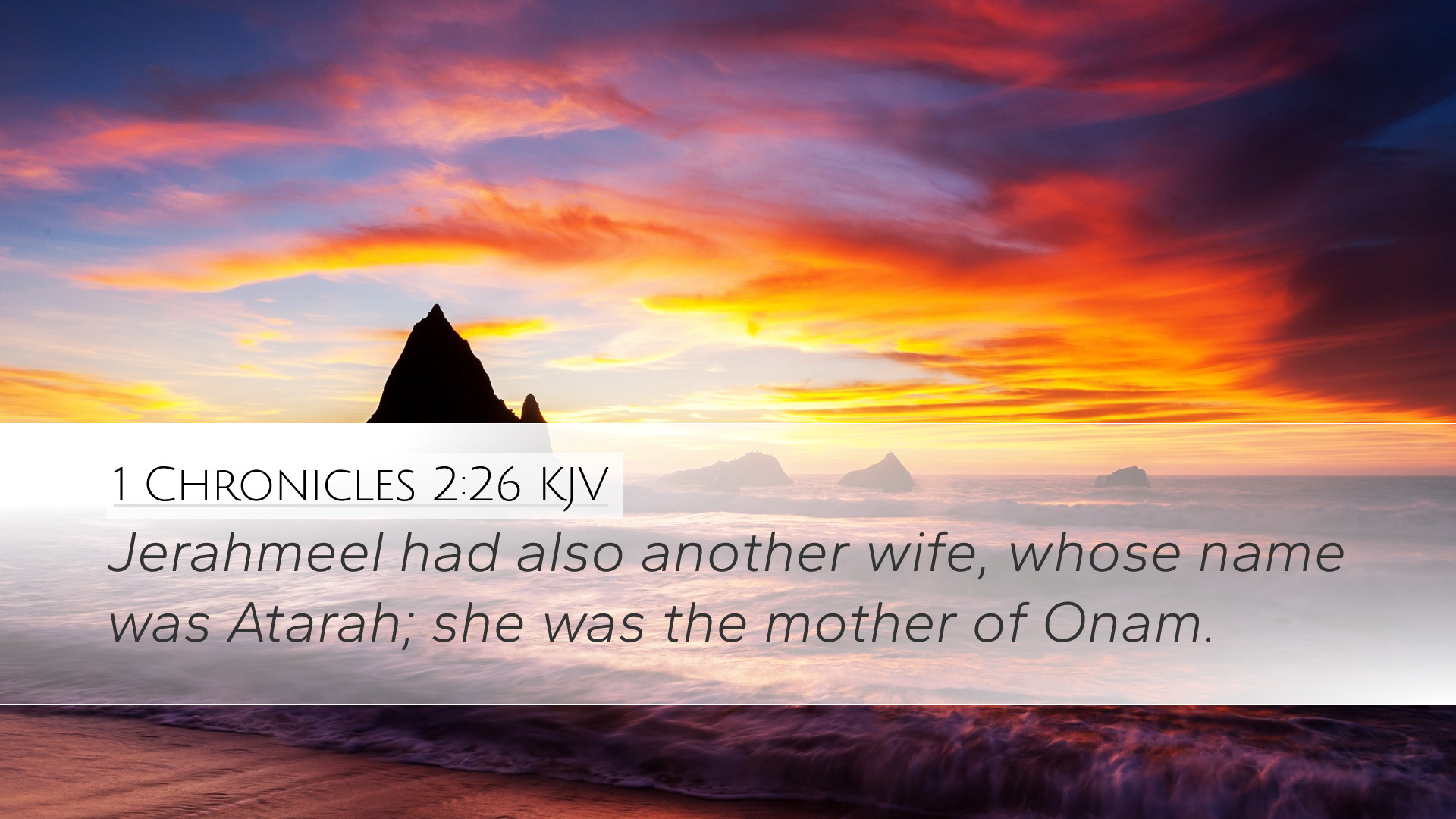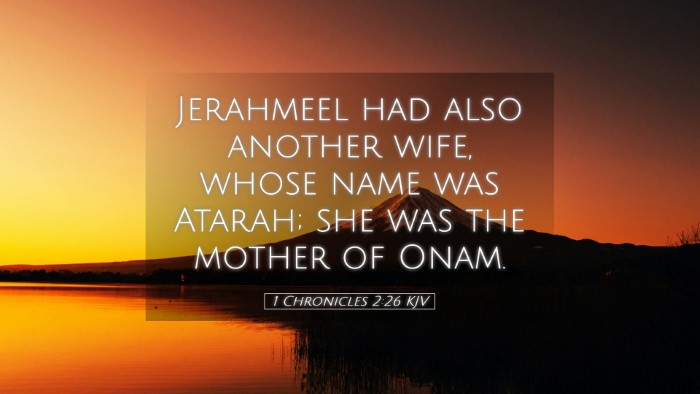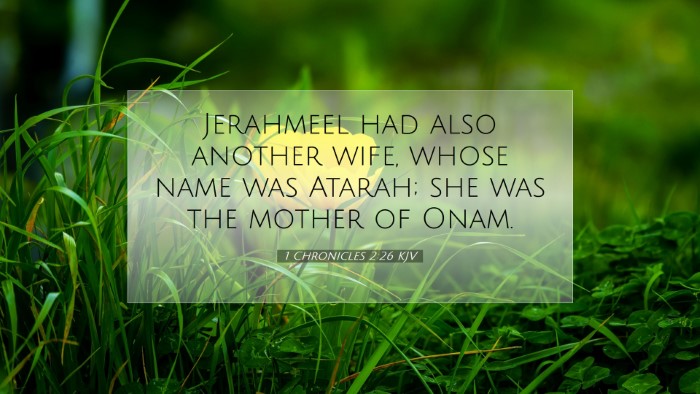Commentary on 1 Chronicles 2:26
This passage, nestled within the genealogical records of Chronicles, is part of a larger narrative that traces the lineage of David and highlights the significance of familial heritage in biblical literature. The verse reads:
1 Chronicles 2:26 (KJV): "And Jerahmeel had also another wife, whose name was Atarah; she was the mother of Onam."
Contextual Background
The Book of Chronicles was composed with a particular focus on offering a theological narrative to the post-exilic community. The genealogies, particularly in the early chapters, serve to establish Jewish identity and affirm God’s covenant with Israel. Understanding this context is crucial when exploring the significance of 1 Chronicles 2:26.
- Importance of Genealogy: The genealogies in Chronicles serve to remind the returning exiles of their roots and God’s faithfulness through generations.
- Focus on the Lineage of David: David’s lineage is central to the Jewish hope for a Messiah, accentuating the importance of each individual mentioned in the genealogies.
Commentary Insights
Matthew Henry's Commentary
Matthew Henry emphasizes the significance of names and relationships in genealogies, waiting patiently for understanding the broader narrative. He observes that the inclusion of women in genealogies, while rare in Hebrew texts, signals an intentional preservation of family lines. Here, Henry remarks on the mention of Jerahmeel’s wife, Atarah, highlighting her as a pivotal figure in the lineage of Onam, thus teaching about the impact of family and maternal influence in the biblical narrative.
Albert Barnes' Notes
Albert Barnes provides a detailed exegesis of the names and significance of the individuals. He notes that Jerahmeel's dual family structure exemplifies the complexities of biblical families and highlights the importance of maintaining legacy. Barnes stresses that Atarah, though less known, plays an essential role in the unfolding of God's promises through David's line, indicating that every individual has potential significance in the divine plan.
Adam Clarke's Commentary
Adam Clarke delves into the etymology of names and their meanings, providing insight that can illuminate the text further. He notes that the name Atarah translates to "crown," which may metaphorically reflect her importance as a matriarchal figure. Clarke suggests that her mention is not incidental but deliberately placed to acknowledge the vital role of heritage and maternal influence within the genealogical narrative of Israel's history.
Theological Reflections
The verse serves as a reminder of the multifaceted nature of family and its implications for faith communities. It compels reflection upon the following key thoughts:
- Value of Every Family Member: Each person listed in the genealogies, including lesser-known figures like Atarah, possesses inherent worth in God's eyes, reminding readers of their importance in God's plans.
- Understanding Divine Providence: God orchestrates the course of generations, often in ways that are hidden to them. The inclusion of names emphasizes His involvement in the mundane details of life.
- Interconnectedness of Humanity: The genealogical lists reveal a network of relationships that encourages a sense of belonging among the people of God, fostering unity and identity.
Application for Modern Readers
This passage calls pastors, students, theologians, and scholars to reflect on their own familial connections and how these relationships shape their faith journeys. Consider the following applications:
- Honoring Family Heritage: Contemporary believers are encouraged to recognize and honor their ancestry, understanding how it plays into God’s larger story.
- Emphasizing Community: Just as genealogies built community and identity, modern faith communities can leverage their collective history to strengthen bonds.
- Valuing Contributions of All: Each member of a community has unique contributions that, though seemingly small, can significantly shape the broader narrative of faith.
Conclusion
In summary, 1 Chronicles 2:26, while appearing to be a simple genealogical note, reverberates with depth regarding familial relationships, the importance of legacy, and broader theological implications. By integrating insights from various esteemed commentaries, modern readers are encouraged to see the significance of every name within the narrative of Scripture as a testament to God's overarching providence in human history.


